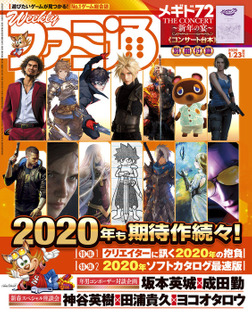
Famitsu magazine ran a Year of the Rat interview with two video composers who were born in the year of the rat: Sakamoto Hideki (b. 1972), who has composed music for the Yakuza and Super Smash Brothers series, and Granblue Fantasy‘s own Narita Tsutomu (b. 1984).
The two of them discuss video games, working with the legendary Uematsu Nobuo, and more!
(This interview first ran in the January 23rd issue of Famitsu magazine – as a reminder, any errors are Vibratingsheep’s unless noted otherwise)
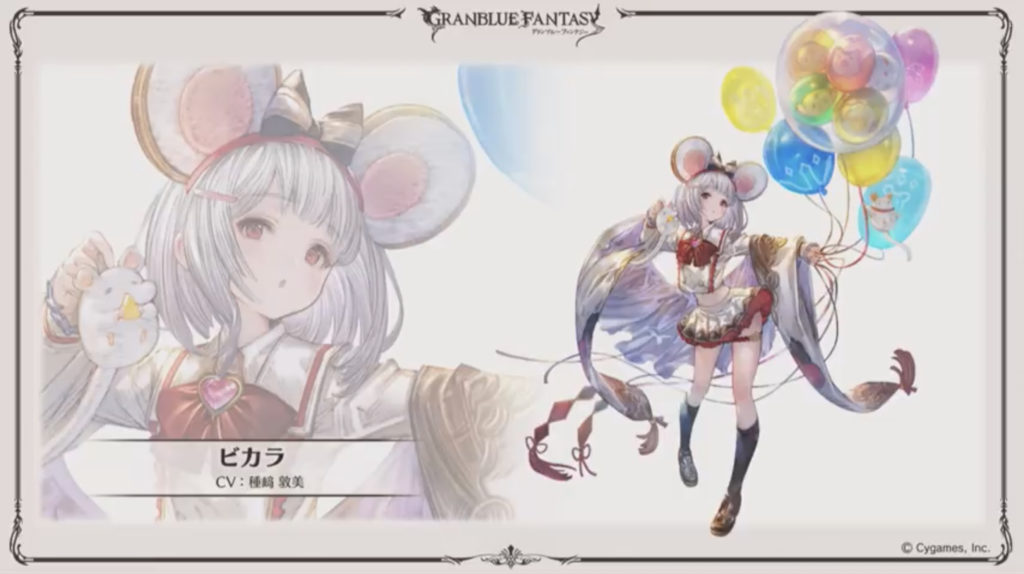
The 12-year age gap
Q: You two are exactly one Zodiac cycle apart – 12 years.
Sakamoto: I didn’t know that – it surprised me.
Narita: *laughs* I knew that Sakamoto was older than me, but we really don’t share our ages in the game music industry. We just stay active.
Sakamoto: Yeah. I think the biggest group of active composers in the music industry are a little over my age.
Q: Why do you think that is?
Sakamoto: I think that’s the generation that grew up with the Famicom (Nintendo Entertainment System). That group wanted to grow up and work in games, and that was when the profession of game sound creator was born.
Q: The Famicom’s influence was huge, huh.
Narita: When I was growing up, I played the Super Famicom.
Sakamoto: What?! I played the Game and Watch.
Q: Is that the 12-year age gap right there? *laughs*
Narita: I was a Final Fantasy and Dragon Quest kid all the way. When I was in grade school, my first video game was Final Fantasy V (1992). When I told Uematsu that, he stared at me in shock and went “huh?!”
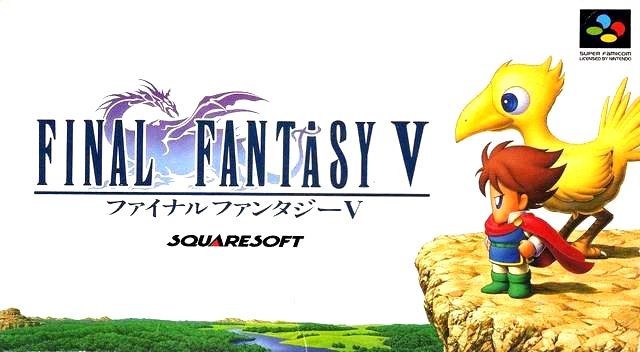
Sakamoto: Hmm, I remember my grandma watching me play FFV and crying over the story.
*the group laughs*
Fortune, both good and bad
Q: When did the two of you decide to become composers?
Sakamoto: I was in my second year of middle school. I grew up in a house that listened to a lot of classical music, and started playing piano at age 4. It was only natural that I fell in love with music. When I found out about game composers, I knew that it was for me. But my father told me “Is this really a career? You should become a public servant” when he found out. I told him “Yes, Dad” and didn’t mean it at all.
Narita: I didn’t really decide on game music specifically, but I wanted to become a composer around my second or third year of high school. My parents were just as opposed to it as Sakamoto’s were, though.
Sakamoto: Become a parent yourself and you’ll understand – music isn’t a stable industry…
Narita: My parents are performing musicians themselves, so they already knew how tough the business can be. I spent six months working to convince them, and finally got the okay from them. Now they cheer me on. *laughs*
Q: Narita, you released a composition for wind instruments when you were 20, is that correct?
Narita: That’s correct. That was my first time ever getting paid for my music. I spent some time accompanying woodwinds, accompanying choirs, I played in a band, so I hadn’t really decided on a genre yet at that age.
Q: Could you tell us the story of how you two began working on game music?
Sakamoto: After I graduated from college, I went to work in the music industry, but a lot of those jobs involved things like handling other artists and driving them around. I learned a lot about how to work with studios at that time, but I never stopped thinking “I want to make my own music…”
So I left that job, supported myself with part-time jobs, and became a full-time freelance composer.
Q: What was the first game you worked on?
Sakamoto: It was a PlayStation game. That machine turned game music on its head, and did a lot to spread the joy of music. I think I made more than a hundred songs for it?
Q: Your first game and it was over 100 songs?
Sakamoto: But I wasn’t allowed to put my name on it. To get credited for it, you had to have a proper contract, and I didn’t have that as a freelancer. I did a lot of work for developers by coming in to assist other composers, and no matter how much I worked on them I never got my name in the credits.
Q: It must be tough to get the next job if you don’t have any credits to your name.
Sakamoto: It’s true. If I was a top composer, then the story would be different, but game music wasn’t valued very highly back then. I was very frustrated, but I kept working, with the goal of some day getting my name out there.
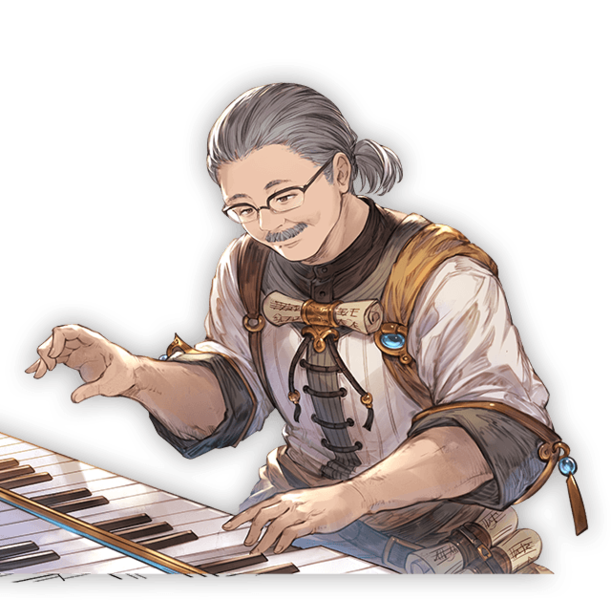
Q: Narita, your big break was with Uematsu, right?
Narita: That’s right. I’ve been a fan of Uematsu’s for a very long time, and I used to listen to Uematsu’s radio show all the time. On one of his shows, he said “I’m looking for people who’re skilled with music.” It wasn’t exactly a very high bar, so I sent in a demo right after that. After I did, I got a message from him saying “I want you to do the programming and step recording on this” – it was the score for the main theme of a game he was working on at the time.
Sakamoto: So he wanted you to do the manipulation work. Maybe he was testing your abilities?
Narita: I had some time, so I sent it back one night later. Then I got the message “Would you like to come to the studio and meet Uematsu in person?”
Sakamoto: You got a huge break!
Narita: I was so starstruck, I don’t even remember what we were talking about, but he asked me “Do you have any interest in arranging music?” It was something I was already doing, so I said “Yes, I do.” That’s how I got the job.
Sakamoto: That’s amazing, I didn’t think the world worked like that *laughs* How old were you?
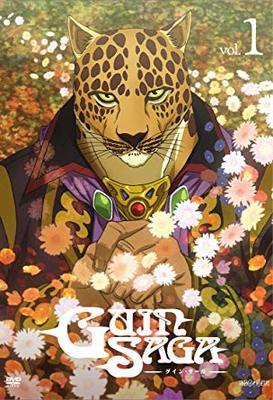
Narita: I was 24. After that, he put me on arrangement for an anime named Guin Saga, but he didn’t tell me what I was working on until after I’d finished my first jobs. *laughs*
Sakamoto: I think he knew how good you were at the job when he got the opportunity to talk to you. You nailed the whole recording in one night, anyone would have invited you in after seeing that talent in action.
Narita: At the time, there apparently weren’t that many people who could work on orchestral and woodwind scores, while also working on sequencers and band music at the same time. The fast response was a bonus, but that’s what they liked about me.
The Uematsu factor
Q: Sakamoto, you’re in a band named TEKARU. Narita, you lead Stella Magna for Granblue Fantasy, and are a member of Uematsu’s Earthbound Papas too. How did those bands get started?
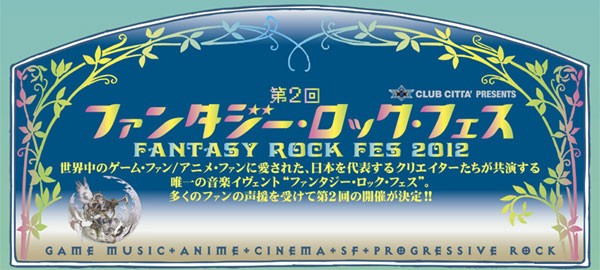
Sakamoto: I started because Uematsu’s progressive rock concert, Fantasy Rock Festival. The first one was in 2011, and he invited me to it. He contacted me out of nowhere and asked “Sakamoto, you’re a prog guy, right?” I wasn’t, by the way.
Narita: *laughs* But your Mugen Kairo (Echochrome) music was prog, wasn’t it?
Sakamoto: Uematsu told me “I have a concert coming up, so come perform” *laughs*. I thought it was a pretty crazy request, but I talked to Itou Keisuke, a writer at the company. He told me “We got this.” So he bought a bass – after never having touched a musical instrument in his life, by the way – looked up how to tune the strings on Wikipedia, and started practicing!
Q: What?!
Sakamoto: We got the idea that we could make a band out of members of the company, so I bought an Introduction to Progressive Rock book, and tried to meet Uematsu’s expectations. I felt it would be rude to him otherwise. And on that stage, I met Narita, who was a member of the Earthbound Papas.
Narita: I joined that band on Uematsu’s request as well. And while we were discussing it, there was one really surprising mail.
Q: What was written in it?
Narita: “Out of all these album titles, tell me which ones you can sing off the top of your head.” That list included Yes, and Pink Floyd, but I’m embarrassed to say that there were a lot of them I didn’t recognize. After I replied, he sent back a message that just said “Got it”. I was wondering what that meant, when a week later a big box showed up at my door.
It had the albums from every band that I’d said “I don’t know” to *laughs*
Sakamoto: Uematsu sent those! He really wanted to do those with you, didn’t he.
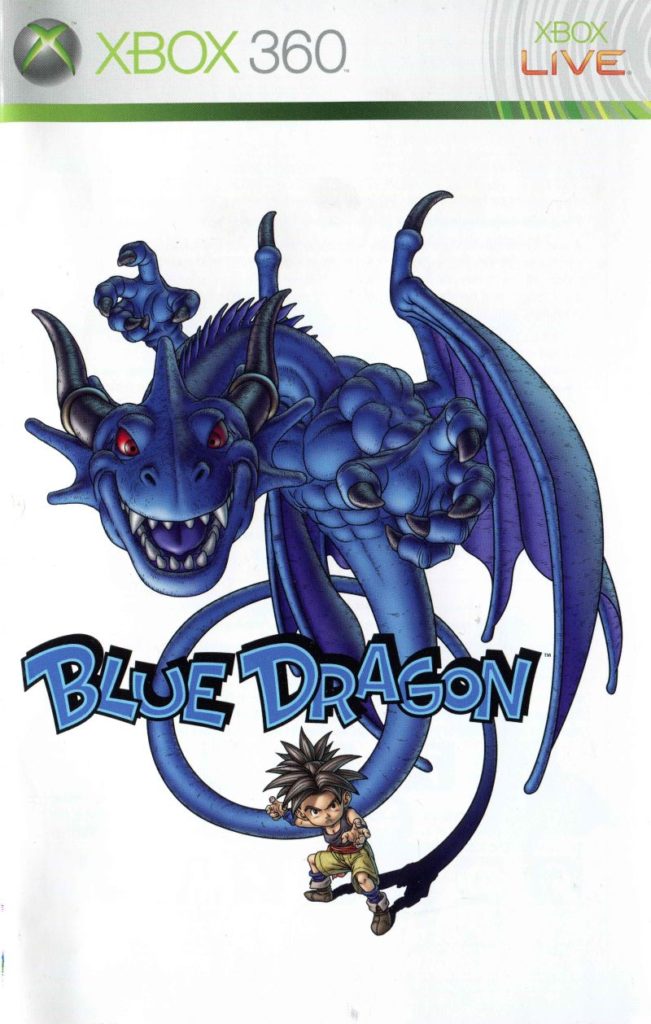
Narita: I stopped playing the guitar in high school, but one time we had to perform a song from Blue Dragon. The track had a double necked guitar and an organ, so Uematsu told me “I’ll play the organ – Narita, what are you going to do? You said you used to play the guitar, right?”
Sakamoto: Oh no, I know where this is going *laughs*
Narita: I couldn’t say no *laughs*. But because of stories like these, I can play all the instruments for my recording and programming.
Q: So that expanded your capabilities *laughs*. In recent years, you’ve also made your own band, Stella Magna.
Narita: In August 2016, an orchestral concert “Granblue Fantasy Orchestra – Sora no Kanade” was held to celebrate the second anniversary of Granblue Fantasy. We picked GBF songs that would suit an orchestra for it, but there are a lot of GBF songs that fit a band better than an orchestra. I thought about that and decided that I wanted to hold a rock concert for the game, and I talked to Kamikura Noriyuki about it.
He told me “Japan Game Music Festival is coming up and is focused on video game bands – if you want to, you should start a band and perform there.” That was in 2017, and at the same time, we were getting ready for the very first Granblue Fantasy Fes. Cygames also asked me “Can you do a short band performance?” It all came together very quickly.
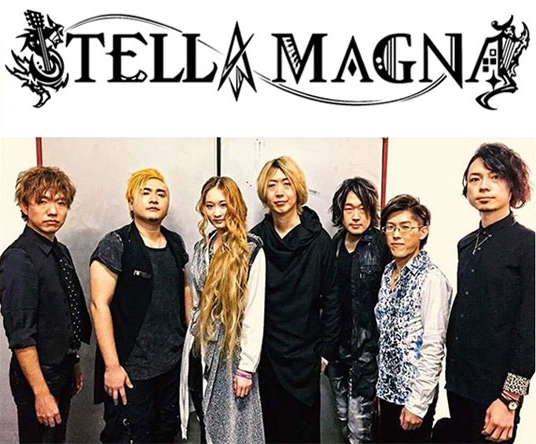
Sakamoto: These little coincidences happen to you a lot, don’t they? They’re proof that you’re doing great work.
Narita: I’m very blessed by the people around me.
The composers who wait for inspiration
Q: Could you two walk us through your process of making music?
Sakamoto: I don’t really say “alright, let’s get this done” and write a song anymore. I have to wait until the inspiration strikes me. It happens while I’m driving, it happens while I’m walking, I feel like I’m a GPS receiver for music sometimes.
Q: Really? You write so much music each year, it’s hard to believe that you have to wait.
Sakamoto: I can’t think through it the same way anymore – composing music is like having a conversation to me, and it’s harder to do when I start thinking about it. Music is like speech in that way – it’s better when it naturally flows out of me. I keep the client’s requests and wishes in mind, take into account the story and setting, and use the graphics as hints. After that, I wait for the music to well up from inside of me. When I’m arranging music, it’s similar – I wait until I can hear it. I play everything on the piano, insert the melody, the chords, insert the rhythm section, and then erase the piano track.
Once that happens, I start to hear the obbligato, the interlude, and the countermelody.
Narita: I wait for inspiration to strike, too. But when I’m working on my arrangements, it’s more like I’m having a conversation with another me. I look for the parts that float down to me, and think about how the sound would come back to me as music. Sometimes I go through a more logical process, but it feels more like translation to me than anything else.
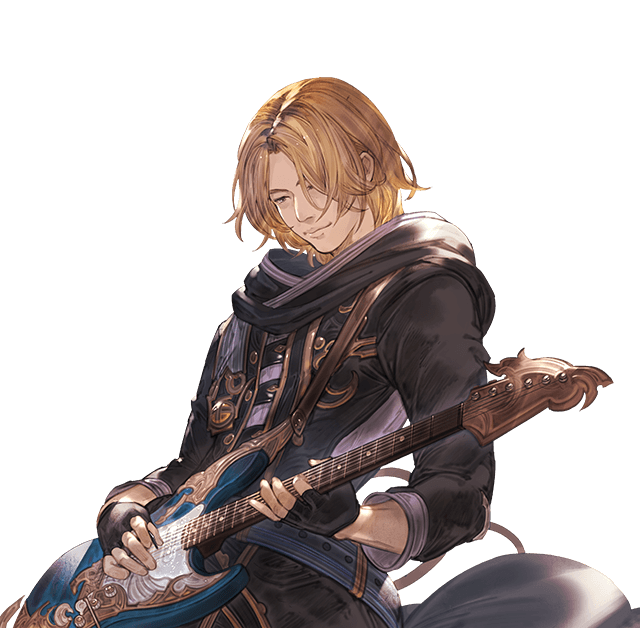
Q: Do you write for the piano too, Narita?
Narita: I play and record a lot of the band parts, the piano arts, and the percussion. For the other parts I use a scoring program. The melodies and chords are written for piano first, then I arrange and orchestrate them before moving them to the sequencer.
Sakamoto: Whoa, really? That’s amazing! You start in a scoring program?
Narita: I started out by writing a lot of sheet music and scores myself, so I’m used to it.
Sakamoto: I do it by feel, so I have to be able to play the piano before I can write music. I write sheet music because I have to, so I study it, but… if I could, I’d abolish sheet music *laughs*
Narita: *laughs* That’s because of your process, Sakamoto. It’s easier for me if I start with the sheet music first. When I see the lines and bars of the score, I can hear the music in my head.
Sakamoto: That’s where you and I differ – I have to hear it, or it doesn’t exist for me.
Narita: Everyone has their own style.
Q: Just like how painters have their own unique processes, composers seem to have their own styles too.
Narita: I think drawing and composing music are very similar creative processes. Although I have absolutely no talent for drawing myself… *laughs*
Sakamoto: I think it’s a little more like cooking. If the fish and the vegetables aren’t fresh, which in this case is the recording and the demo, then no matter what you do to it, then it won’t turn into good music in the end. And just like cooking, where there’s no one perfect way to cook and season the ingredients, there’s no one right way to arrange a song.
Narita: I almost never get to talk shop like this with anyone, this is a lot of fun.
Sakamoto: When we get together, all we end up chatting about is things like “who’re the popular artists right now?” *laughs*
Narita: *laughs* We do talk about our tools sometimes, at least.
Sakamoto: Well, if we started talking about music, then it might hit some deeply rooted beliefs and we’d get into some heated arguments.
The new age – many rivals, many choices
Sakamoto: So the theme of today’s talk is how Narita and I are separated by 12 years, right? Our first consoles being the Game & Watch and the Super Famicom are a pretty big difference. The Game & Watch only made some beeps.
Narita: The Super Famicom had 8 sound channels.
Sakamoto: What did you play on the Super Famicom, anyway?
Narita: Other than Final Fantasy and Dragon Quest, I played quite a few games – a lot of them were still Square and Enix RPGs. The very first one I played was Sim Earth, which came with the console when my dad bought it.
Sakamoto: That’s a depressing one *laughs*
Narita: That game’s music was really unique too, and it left an impression on me. It felt kind of sad, and the game itself was really hard.
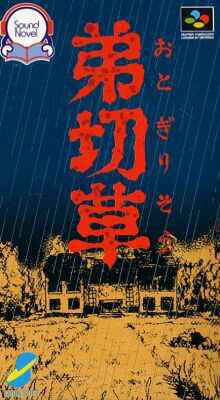
Sakamoto: For me, it was Street Fighter II, SimCity, and Otogirisou. When the Famicom gave way to the Super Famicom, I really noticed the advances in sound technology.
Q: So the sound was your focus?
Sakamoto: I loved the little boops that come out of the Famicom, but the strings on Otogirisou, the glockenspiel, that’s when I thought “we’ve entered a wonderful age.” People talk about how limited old game music was, but when there are limitations like that, that’s when you really draw out the personality and technique of the creators.
Narita: I agree. And the writer’s personality came out more, too.
Sakamoto: With a limited number of sounds, if you tried to use methods from modern movie composing, it wouldn’t sound any good. In the old days, you had to do everything you could to make the melody stand out. Because of that, they had a lot of really memorable tracks that are still talked about today.
Q: Do you have anything to say to the next generation of Rats?
Narita: So to the 24-year-olds? Hmm, that means there would still be a lot of students among them, right?
Q: Probably. It means they would have played the PS3 and the Wii during their adolescence.
Narita: So the sound that they grew up with is pretty much the same sound we have today.
Sakamoto: People say this a lot, but the bar to creation is much lower than it was in Narita’s era. If you have a laptop you can do everything, and the software and synthesizers are cheap. It’s something we would have dreamed of in our age *laughs*. But that means you have a lot of rivals.
Narita: Now that you can do everything, it means you have to do everything. In this era, you have to cultivate a lot of different abilities and talents.
Q: You can broadcast anything on social media and YouTube now, but if you want to be a game composer these days, what are the best ways in?
Sakamoto: I hear that mobile game companies don’t really allow you to compose anymore. Instead of composers, they want sound directors, apparently.
Narita: It’s probably a better path to join sound design companies like Sakamoto’s Noisycroak.
Sakamoto: Times have changed. In the old days, you had to join a development studio, but there are a lot more options now. It’s so hard to find a single “best” answer. It’s especially hard because people who’re older than me are still active *laughs*. There are times when I wonder how younger people can find their way in…
Narita: Companies have a retirement age, but when you’re a composer, you’re active until you die or say you’re done. So there are more and more of us out there.
Sakamoto: That’s one of the great parts of the career. There may not too many from the young generation flooding in to fill everything up, but there may be people like Narita who get a chance from listening to a radio show and take their first steps.
Q: Noisycroak is hiring, isn’t it?
Sakamoto: Yes. We want people who have their own ‘color’ – in other words, people who we can give specific assignments to with a purpose.
Narita: That’s really important. Having your own style affects how you compose, and I think it needs a lot of courage to build.
Sakamoto: And I look for people who can see things from a fan’s eyes. It might be hard to do that these days, though.
Q: In next year’s New Year special, we’ll look into inviting some creators who’ve just turned 24.
Sakamoto: I hope that happens. When I was just getting started, there were a lot of young stars like Mitsuda Yasunori.
Narita: I looked up to Mitsuda a lot when I was young, and a lot of the work Sakamoto’s generation did made things a lot easier for me. Considering that this is a job that lasts your entire life, I’m still a newcomer… but I hope that I’ve made this industry an easier to work in for the generation that’s 12 years younger than I am.
Sakamoto: In every industry and career, you need to have a lot of young people or you’re going to go extinct. I hope that we’ve made game music and composition look like an attractive job to pursue, and we have to make sure we keep doing that.
Final comments
Sakamoto: Lately, I’ve been working with movie and anime music, and a new world has opened to me. I’ve been able to use the tricks and know-how from my time in game music, and I’m confident that I can use that in any genre they throw at me. So, Noisycroak isn’t just limiting itself to games – we’re going to make music for all kinds of media from now on.
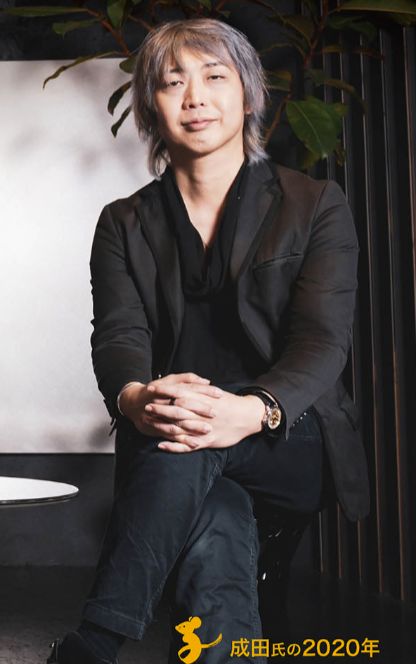
Narita: Granblue Fantasy‘s 6th anniversary is coming, but I want to make sure I never forget where we started. There are a lot of people who have never played with the sound on, or who have never played the game at all, and I want them to be able to hear my music. Whether that’s through console games, or by performing the music myself, I want to give them more opportunities to hear my music.
